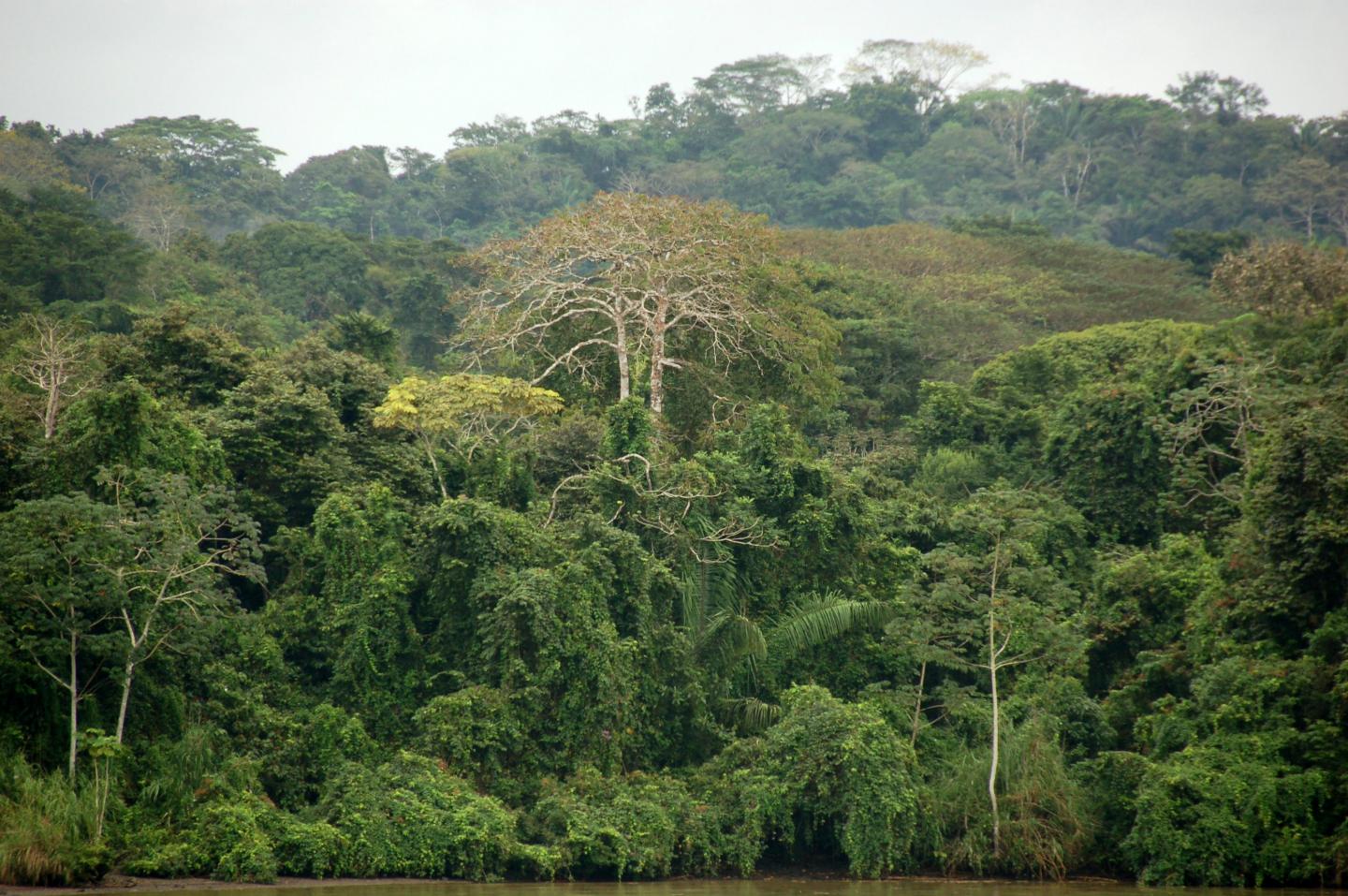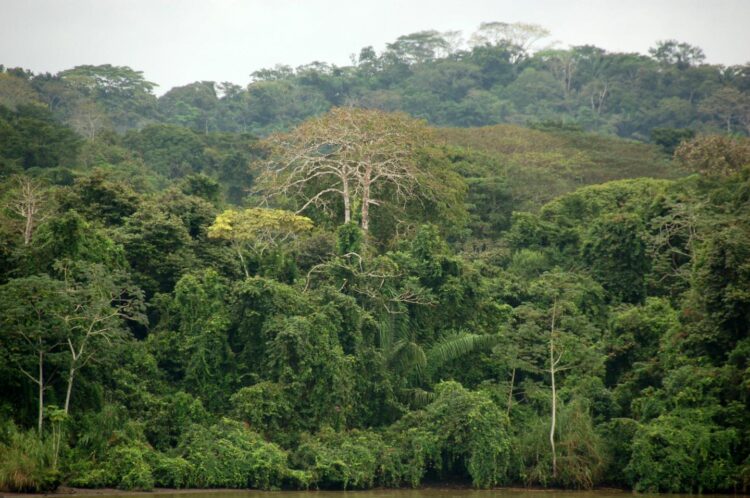
Credit: Scott Ableman/Flickr
How plants will fare as carbon dioxide levels continue to rise is a tricky problem and, researchers say, especially vexing in the tropics. Some aspects of plants’ survival may get easier, some parts will get harder, and there will be species winners and losers. The resulting shifts in vegetation will help determine the future direction of climate change.
To explore the question, a study led by the University of Washington looked at how tropical forests, which absorb large amounts of carbon dioxide, might adjust as CO2 continues to climb. Their results show that multiple changes occurring in plants’ leaves and competition between species could preserve these ecosystems’ ability to absorb carbon dioxide from the atmosphere. The resulting paper was published Jan. 16 in Global Biogeochemical Cycles.
“Our findings suggest that plants with some types of responses, like making their leaves thicker, will ultimately grow better in tropical forests than their competitors,” said senior author Abigail Swann, a UW associate professor of atmospheric sciences and of biology. “If these better-growing plants become more common in the forest, the total rates of water and carbon exchange could stay closer to what they are now.”
A previous study by Swann’s group showed that tropical plants leaves’ becoming thicker as CO2 climbs would worsen climate change, because thicker leaves might also be smaller. Plants would then capture less sunlight for photosynthesis, absorb less carbon dioxide from the air and emit less water vapor, all exacerbating the heating due to climate change.
The new work expands the scope of this question to include competition between plant species, and the ratio of carbon and nitrogen in their leaves. Higher carbon dioxide in the atmosphere makes it a bit easier for plants to photosynthesize. But if nitrogen can’t keep up, the plant becomes less efficient at producing energy.
“Although it is observed to happen, the verdict is still out on why exactly plants grow thicker leaves under high CO2,” Swann said. The new modeling study suggests an explanation: “Thicker leaves can concentrate the nitrogen so that photosynthesis rates per area of leaf are high.”
The authors ran simulations for Barro Colorado Island, a forested tropical island in Panama where the model had been well tested against conditions on the ground. The simulations included one or two species of broad-leaf evergreen tropical trees, such as wild cashew and Ecuador laurel. The trees were programmed to have various responses to the higher carbon dioxide and could compete with one another for space.
Trees that were programmed to have more carbon relative to nitrogen in their leaves became less efficient at photosynthesis, which helps them to grow, and emitted less water vapor, which helps trees stay cool. But tree species whose leaves also thickened were better at absorbing carbon and producing water vapor, helping them to grow tall and stay cool, and could also outcompete their neighbors.
“Our work suggests that by shifting which plants are growing in the forest there may be less dire consequences of higher CO2 than other studies have suggested,” Swann said. “There is a lot we still don’t know about how plants are responding to climate change — this work really sets up some best guesses about which plants will grow best in future tropical forests that we can test with more observations.”
###
This research was funded by the National Science Foundation and the U.S. Department of Energy. Lead author was UW graduate student Marlies Kovenock; co-authors are Charles Koven and Ryan Knox at Lawrence Berkeley National Laboratory; and Rosie Fisher at the National Center for Atmospheric Research.
For more information, contact Swann at [email protected].
Media Contact
Hannah Hickey
[email protected]
Original Source
https:/
Related Journal Article
http://dx.





